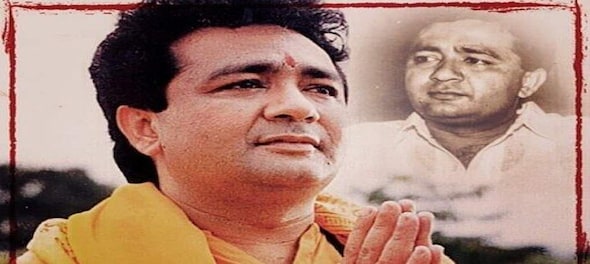
Before he was brutally assassinated in August 1997, Gulshan Kumar Rai was the uncrowned king of music production in India. In 1980 he started Super Cassettes Industries whose music label T-Series became the leading record label for Bollywood music through the 1990s.
Gramophone Company of India (now Saregama HMV) had been the reigning king of Hindi music for decades, though in the 1970s, Polydor and CBS had emerged as challengers. But for the two MNCs, India wasn’t a priority market given its small size, since very few people could afford the turntables and the records.
Two factors combined to change that. First, a liberalised import system allowed a surge of Japanese cassette players into the country. But with the big boys, primarily HMV, still focused on records, the opportunity might have gone abegging had it not been for the entry of Gulshan Kumar.
The son of a fruit juices seller in Delhi’s Daryaganj area, Gulshan Kumar’s first introduction to the music business was through a records shop that his family had bought. Shrewdly he realised that the future was in cassettes and using the concessions available to units classified as small scale, he started producing low-cost cassettes which he also priced aggressively in the market. His masterstroke, however, came from a loophole in the Indian Copyright Act which allowed for cover versions of well-known records to be produced provided the singers and the musical orchestra were different. On these cover versions, only a nominal royalty needed to be paid to the original producer.
It also helped that there was an entire generation of talented singers who could make little headway in an industry dominated by the likes of Mohammed Rafi, Lata Mangeshkar, Kishore Kumar and Asha Bhosle. Kumar roped in singers like Anuradha Paudwal, Mohammed Aziz, Kumar Sanu and Alka Yagnik to sing popular numbers. Obviously, he paid them only a fraction of what the original star singers would charge.
Kumar also turned his attention to the distribution network which in the past comprised shops in high-end areas which sold high-priced records. T-Series cassettes by contrast, were hawked by panwallas and neighbouhood grocery stores.
Kumar also identified the virgin market for devotional songs and tapped into it with a series of cassettes featuring well-known religious singers.
By 1997, T-Series was a Rs 500 crore company. But Kumar was making enemies with every passing day. His cutthroat pricing strategy was sending other companies hurtling into losses. Also, the whole business was built on pirated music. It wasn’t just the music labels that were hurting. Filmmakers too saw these pirated cassettes eating into their potential profits from music sales. When the music of a super hit film like Dilwale Dulhaniya Le Jayenge was pirated and sold within days of its release, the financiers started getting riled.
Eventually, contract killers acting on the behest of the mafia in Bollywood, took advantage of a lack of security and shot him dead.
Abdul Rauf aka Daud Merchant who was among the assailants who pumped 16 bullets into him on that fateful day of August 1997, was given life term in the case in 2001. Though he challenged the sentence, the Bombay High Court in July 2021, upheld the earlier decision.
Days after the killing, the police also declared music composer Nadeem Akhtar Saifee, part of the Nadeem-Shravan duo, a co-conspirator in the case. They alleged that Nadeem had been upset with Kumar for not giving enough mileage to one of his albums. Nadeem however was later acquitted and has been living in the UK since then.
—Sundeep Khanna is a former editor and the co-author of the recently released Azim Premji: The Man Beyond the Billions. Views are personal
Check out our in-depth Market Coverage, Business News & get real-time Stock Market Updates on CNBC-TV18. Also, Watch our channels CNBC-TV18, CNBC Awaaz and CNBC Bajar Live on-the-go!


'Borrowed' leaders: Congress hits out at AAP for not fielding their own candidates in Punjab
Apr 28, 2024 9:53 PM
EC asks AAP to modify election campaign song and Kejriwal's party is miffed
Apr 28, 2024 9:25 PM

